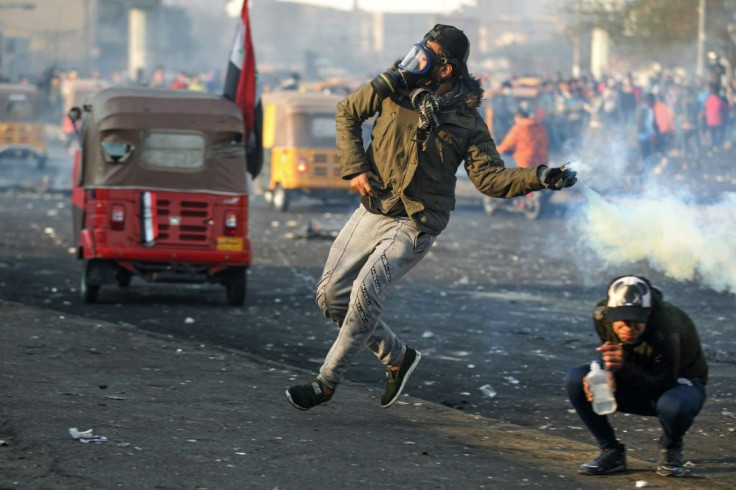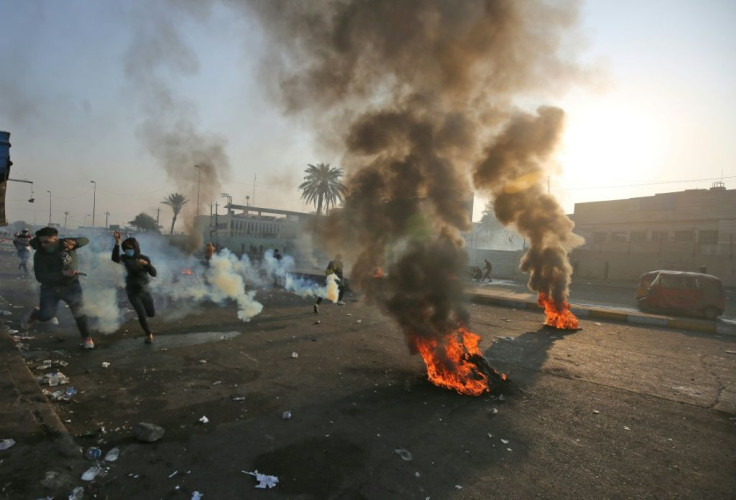Iraq Protesters, Police Grapple For Baghdad Streets As Deadline Expires

Hundreds of Iraqi anti-government protesters grappled with security forces in a bid to shut Baghdad streets on Monday, a deadline they had given authorities to implement long-awaited reforms.
Rallies have rocked Iraq since October but, fearing they would lose momentum amid spiralling regional tensions, protesters last Monday told the government it had one week to meet their demands or they would escalate.
They have called for early elections under a new voting law, an independent prime minister and for all corrupt officials to be held accountable.
Starting Sunday, young demonstrators in Baghdad and the south began sealing off highways and bridges with burning tyres ahead of the following day's deadline.
They tried to do the same early the following morning, but security forces acted fast, with the military saying it had arrested nine protesters and reopened a major Baghdad thoroughfare.
Hundreds of demonstrators also descended to Baghdad's Tayaran Square, where they clashed with security forces who fired tear gas and live rounds to disperse them, an AFP journalist there said.
Young men wearing helmets and gas masks to protect themselves from flying tear gas canisters set up metal barricades in the street to try to push the riot police back.
Skirmishes there had lasted throughout the night, wounding around 20 people including some with gunshot wounds, a medical source told AFP.

Since October, around 460 people have lost their lives to protest-related violence and another 25,000 have been wounded, according to an AFP count.
Authorities do not provide updated casualty numbers.
Demonstrators have feared their movement would be eclipsed by the geopolitical storm brewing between neighbouring Iran and the US, both close partners of Iraq.
A US drone strike near Baghdad's airport on January 3 killed top Iranian commander Qasem Soleimani, prompting Iranian rocket strikes on an Iraqi base housing US troops and triggering fears of a wider conflict.
Iraqi political figures have since ramped up their calls for foreign forces -- including some 5,200 US troops -- to leave the country.
Protesters worry that a separate mass rally this Friday, organised by firebrand Shiite cleric Moqtada Sadr to demand the ouster of US troops deployed in Iraq, could drown them out.
The demonstrations first erupted in October over corruption, lack of jobs and poor services but escalated quickly to demand a total overhaul of government.
Protesters scored one win in December with the resignation of Prime Minister Adel Abdel Mahdi -- but he has stayed on in a caretaker role and political parties have thus far failed to agree on a successor.
Demonstrators have publicly rejected names circulating as possible replacements and are furious that other sweeping reforms have not been implemented.
© Copyright AFP {{Year}}. All rights reserved.




















